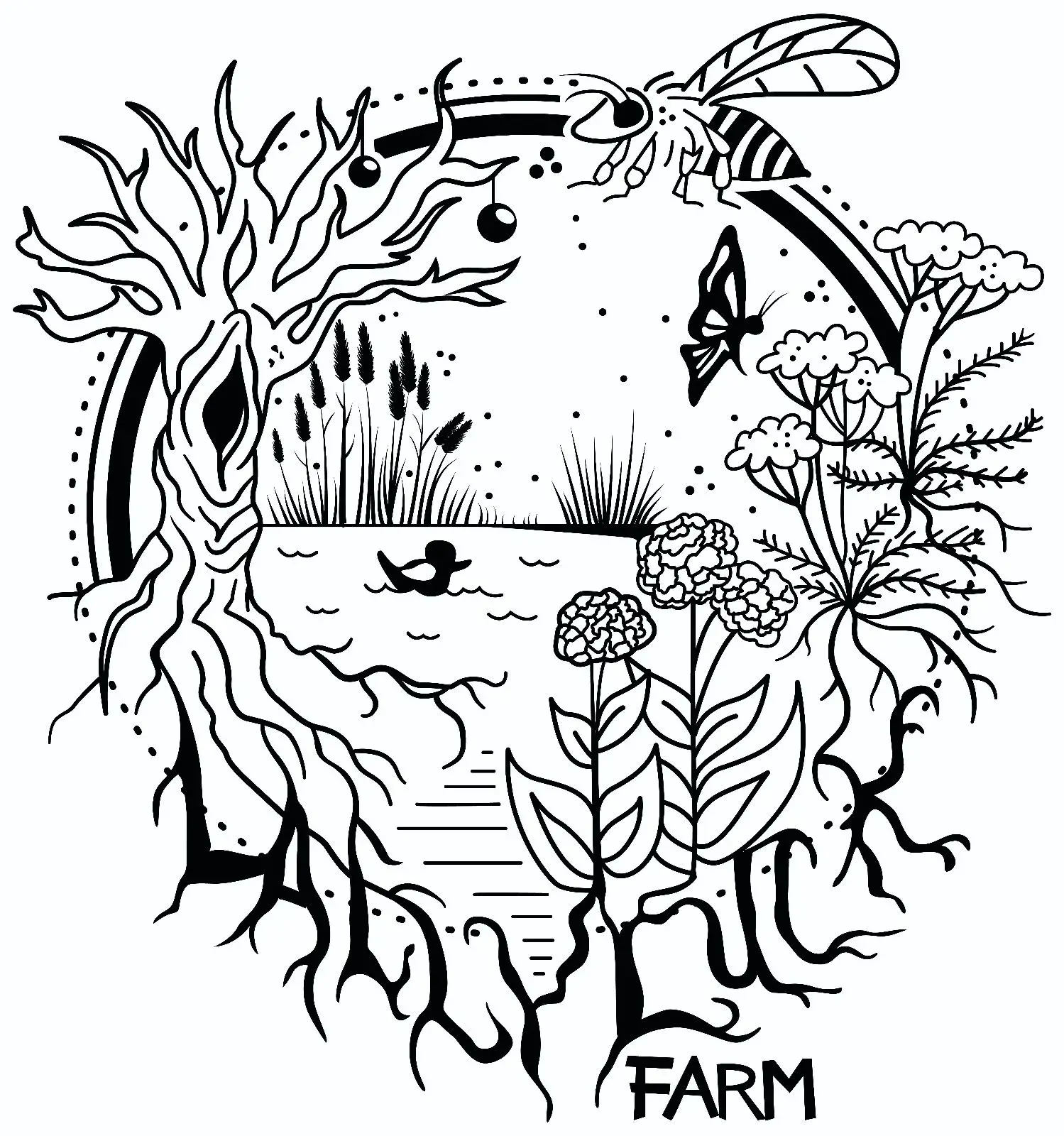So far I’ve planted fruit-bearing trees and other perennials over the past 12 years living in rural Maine. I have zero experience with annual vegetable gardening. My, initial, plan is to start with one vegetable next spring/summer. I’ve chosen cucumbers since it is the most popular amongst my immediate family members (wife and two boys).
The motivation behind this is NOT for sustenance. It is to add an enjoyable hobby for my self. In the off chance that it is NOT enjoyable, then I haven’t invested too much time, effort and money. If I end up enjoying it (which I believe I will), then starting small would be less overwhelming and conducive to a gradual learning experience. Henceforth, since this is not for personal sustenance, we have a local food bank that I could contribute to.
My initial idea is to start growing the cucumbers in a large plastic pot located in my back yard.
And that is how far I’ve gotten in the planning process.
Any and all advice is very welcome.
- if you can handle fruit trees and perennials, then annuals won’t pose too much of a challenge – same rules apply, pick plants that like your climate – USDA hardiness, humid continental climate
- most plants and seed packets will come with relatively basic instructions (how often to water, how much sun, etc.) to give you a starting point
- cucumbers (pretty much the whole squash family) can be pretty prolific growers (there’s running jokes about planting too much zucchini and ending up having to leave bags of extra zucchini on neighbors’ doorsteps)
- if you go a large pot (or a raised bed), take a look at companion planting (plants that traditionally grow well together)
- the classic is “four sisters” (“three sisters” + pollinator) – tall corn in the center, something out of the bean family that will climb up the support of the corn, something out of the squash family that will act as ground cover, and something flowering (like sunflower) that will attract the pollinators (bees and birds)
- if you’re dealing with early winters
- something out of the cabbage family (cabbages, kale, broccoli, cauliflower) and a tuber (carrots, radishes, daikon) – one grows up, one grows down
- potatoes will do pretty well on their own
Wow! Thanks so much for the knowledge and insights.
didn’t even think of this earlier – you can also look into the next step beyond growing and eating: preserving – pickling for the cucumbers (tsukemono or quick pickles, dill pickles, bread-and-butter pickles) – fermentation for the cabbage (sauerkraut, kimchi)
Yes. I do plan on pickling!
Holy wow, another Köppen enthusiast in the wild! The rest of this comment is great too
Cucumbers need a lot of direct sun and a lot of space, either vertical (trellised) or horizontal (along the ground). Put them in a wide open sunny part of your yard. They’re also fairly susceptible to powdery mildew so keep an eye on them if the weather is rainy.
You mentioned you’re in Maine, which means you have a relatively short growing season. You might want to start your cucumber seeds inside to get a jump start on the season in the spring. Otherwise just make sure you get them started right away once it’s okay to plant outdoors so that you don’t run out of room at the end of the season.
Good luck and let us know how it goes! Cucumbers are a very rewarding plant, right up there with tomatoes for me as far as bang for your buck. Homegrown cucumbers have a crunch that totally knocks store bought ones out of the park.
Other vegetables I like growing that grow well in my corner of New England: Basil (grow enough to make several batches of pesto and freeze it) Tomatoes Sugar snap peas Leafy greens, especially collards and Swiss Chard Potatoes in 5-gallon buckets Hot peppers
Thanks a ton for all of that!
I think cucumbers (and relatives like watermelon, squash, etc.) don’t transplant well due to their sensitive roots, so if you grow them in a large plastic pot, don’t expect to move them around or plant them in the ground later.
It sounds like you have a good approach to the gardening - most beginners take on too much and get overwhelmed. Starting small is really smart. Being clear and realistic about your goals is also a great sign.
Growing in the hotter south I always had trouble with cucumbers coming out too bitter, maybe due to the heat. I haven’t grown them much since, but I have heard from others that cucumbers can be really productive if you give them the right place (needs enough sun, water, and space).
Thanks for the feedback.
Of course - can’t wait to hear how your gardening experiences go, please share updates and photos!
please share updates and photos!
I will!
It may be a little late for this year (depends where you are I guess) but runner beans require little space as you run them up some kind of DIY tripod and give you loads of beans later in the year.
They are meant to be perennials (unreliable in my experience!) but I normally grow from seed every year
Thanks.
Go to your local public library and get anything by The Teaching Company on gardening, such as (these are all dvd’s, you can rip them using Format Factory or MakeMKV:
Food Gardening for Everyone
The Science of Gardening
Pioneering Skills for Everyone (there’s a section on gardening in there)
The Science of Gardening
How to Grow Anything (it’s a series of dvd’s)
Thank you for responding. Unfortunately, we do not have any optical media capabilities (i.e. CD, DVD etc.). I may be able to find some of this content on the Internet somewhere though.
What type of soil do you have? To simplify, let’s limit it to three choices: sandy/loose, loamy/rich, or clay/rocky/stiff?
My biggest advice is to use your own tree leaves and any lawn clippings that weren’t mulched back into the yard to make compost and NOT use things like MicracleGro that add salts to your soil because – while the initial crop may benefit – the salts will linger in that soil after the nutrients are absorbed and you won’t be able to keep using that soil if you keep adding those chemical fertilizers. You don’t have to go crazy about composting. Just pile the leaves together and let it sit. If you have lots of leaves, make your pile a row-shape so it is as long as you want, but no thicker than 3-4 feet. Thicker than that means oxygen can’t reach the center.
I learned that from this radio show back when I gardened: https://www.npr.org/podcasts/1087444113/you-bet-your-garden
That guy has all kinds of advice for the serious gardener, too, and I was never serious about it. There are people who actually FLUFF their compost! Can you imagine going out every week or so to toss around dead plant matter with a pitch fork just for aeration? Noooooo! I just let it sit and didn’t worry that it would take longer.
If you want to go beyond the pot and have a spot with sun, I recommend trying strawberries. Get live plants and pop them in the ground, then wait until the next spring. They are an easy early crop and they will replenish themselves with runners so you can get years of enjoyment out of them without having to buy more plants. Also, home grown are going to taste a thousand times better than anything in the grocery store. It looks like Maine has already figured out which grow best there. Note some are more disease resistant than others. https://extension.umaine.edu/highmoor/research/strawberry-variety-testing-at-highmoor-farm/
Other easy crops (2 for pots, the rest for ground):
- cherry tomato – does well in big pots
- rosemary – extremely pottable! then take it inside for the winter. I’m told this is a winning strategy, but my rosemary always dies in the winter despite coming inside.
- mint – not just easy to grow, but hard to get rid of once in the groud
- garlic – my yard is too rocky for garlic, but I grew it for years anyway. It even survived getting mowed down several times.
- leeks – mine were scraggly, but they made for gorgeous flowers so I let them go to seed and lo! They kept coming back from seed on their own! https://extension.umn.edu/vegetables/growing-leeks
- lettuce – cold weather crop. Lettuce becomes bitter as it matures, but you can throw seeds on the ground in the early spring and harvest before summer. If you miss the window and it starts to ‘bolt’ (gets tall), let it go to seed and more will come up next year.
Thanks for all of that information!
Great resource! Thanks.
Cucumbers need a trellis to climb on, and I would start with a smaller variety. Also lots of watering.
Cherry tomatoes are also a good beginner plant. And maybe some simple to grow herbs?
Thanks for the recommendations!
My mother in law lets her cucumbers grow along the ground and they do great. Not sure if she buys a specific variety that’s not for climbing but it’s definitely possible to grow cukes without a trellis. Same as you would squash.
That said, a trellis saves a lot of space.
Even as a fun hobby, try to grow half a dozen things suited to the season. A fresh lettuce patch hasn’t been suggested. Parsley is tough. I’ve yet to have any luck with carrots. Potato will sustain you if it comes to that, easy calorie to grow.
Thanks.
I just got back from Hammerbarn with some spring onions to put in.
e: Not quite the right season, but they’re $5 a bunch or $5 for a punnet of 25. If you’re buying baby plants to grow, many can be seperated and spread out, eg, basil will have about 20 plants in the pot that’ll choke each other if you plant them as a lump. Tease the roots apart gently. Water before and after planting.








